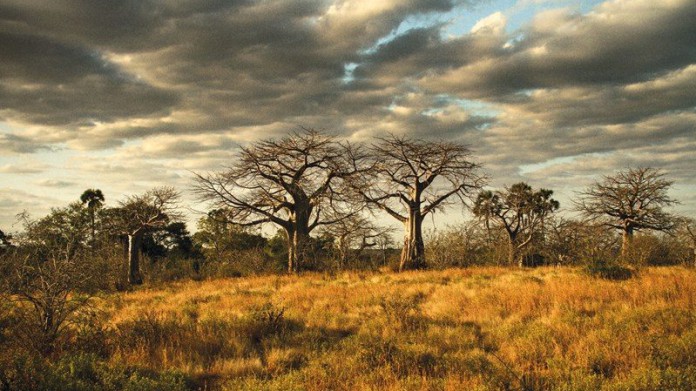
IT’S astonishing how quickly business conditions unravelled for Acacia Mining, a UK-listed gold company operating in Tanzania and in which Barrick Gold, the Canadian gold mining firm, has a 64% stake.
In February, the company announced a doubling in its dividend and a gold production target for 2017 of up to 900,000 ounces, a significant advance on the previous year. In a day, the share gained 9% and life couldn’t have been rosier for its CEO, Brad Gordon.
Only weeks later, on March 3, the Tanzanian government announced a ban on exports of Acacia’s gold and copper concentrates on the basis that the firm had under-estimated the value of its shipments and, therefore, under-paid on tax.
Worrisome as that might have been to Acacia, there could be no sign as to what would befall it following the findings of a Presidential Second Committee which found it owed the Tanzanian government tens of billions in dollars in unpaid taxes – dwarfing Acacia’s market value which was rapidly in decline, down about 45% in three months.
Having absorbed the committee’s recommendations, Gordon has initiated arbitration whilst Barrick engages in a separate line of talks with the Tanzanians. The companies are also picking through three items of legislation passed this week by the government that attempts to capture future revenue to which it feels would be due.
Putting it mildly, the Tanzanian government’s historic claims against Acacia are a reach as they conclude Acacia under-reported exports by a factor of ten. In practice, this would mean two of Acacia’s affected mines – Bulyanhulu and Buzwagi – would each be producing 1.5 million ounces a year making them the richest in the world. Some 20 years of internationally audited data shows neither mine is so capable.
But the new legislation, far from an opportunistic stab at the past, looks like a serious attempt to redraft the mining exploration and project development landscape, and is part of a wider set of policy-making by President John Magufuli who, since his surprise 2015 electoral victory, hasn’t stopped raising eyebrows.
Nicknamed ‘the bulldozer’ for his interest in improving infrastructure in Tanzania, Magufuli has instituted a range of measures aimed at weeding out corruption. He has shaken up institutions, cut unnecessary expenses such as foreign travel for civil servants and the lavish independence day celebations, and fired the board of the country’s largest hospital after he found patients sleeping on the floor during an unannounced visit.
The stand-off with Acacia ups the ante on this swashbuckling first year in office – a situation Investec Securities analysts Marc Elliot and Hunter Hillcoat said could expose Tanzanian as “an irrational administration” – but Louis Coetzee – speaking at the Junior Indaba conference in June before the passing of three bills this week – said Magufuli’s changes were conceptually sound.
Coetzee, who is CEO of Johannesburg-listed Kibo Mining, said Magufuli was trying to bring action and modernity to a body of mining laws that had been tardily drafted and not implemented. “Regulations were created for the exploration industry that took no account of what would happen when explorers became producers. We warned them but they didn’t listen,” said Coetzee who has been active in Tanzania for more than 10 years.
“Then you got a situation where producers were benefiting from laws only explorers should enjoy with incentives appropriate to exploration company risk. They have amended the mining code, mainly in 2010, but Magufuli is just trying to impose the laws as they should have been,” he said.
Kibo is building the Mbeya Coal to Power Project (MCPP) which includes the $17m Mbeya coal mine which will supply a 300MW power station. Meeting schedules for a mining development company is always crucial as it limits cash burn; so when wholesale changes to the board of the state-owned coal company – TANESCO – were made, there was some understandable concern at Kibo.
“The process of negotiating and agreeing a final power purchase agreement (PPA) should now progress at a considerably faster pace than over preceding months as this remains the key to completing development of MCPP,” Coetzee added. He previously said in a first quarter update on the firm’s strategy that “… progress on finalising the MCPP PPA remains slower than we had hoped”.
Other companies are trying to absorb the implications of the mooted changes to Tanzania’s mineral legislation. One, Kibaran Resources, which holds a 10-year mining license to graphite projects, believes itself to be exempt from the impact of legislative changes.
But there is concern over whether a 16% free-carry given to government in one of the new laws would affect its class of licence and, by dint of such a reclassification, bring it under the purview of the proposed legislation. “The clarification of this issue is not expected until the regulations to the new legislation, together with the mechanics and definition of its implementation, are released by the Tanzanian government,” it said.
“While we are unsure of government actions’ motives (i.e. fight against corruption among authorities involved in the sector or simply populist calls for miners to provide a larger share of economic benefits to locals), we fear latest developments are likely to lead to completely opposite results involving a revision in estimates for risk premias of operating in Tanzania, hurting a major FX earner industry and costing the nation jobs, tax revenues and future investments,” said John Meyer, an analyst for SP Angel.









